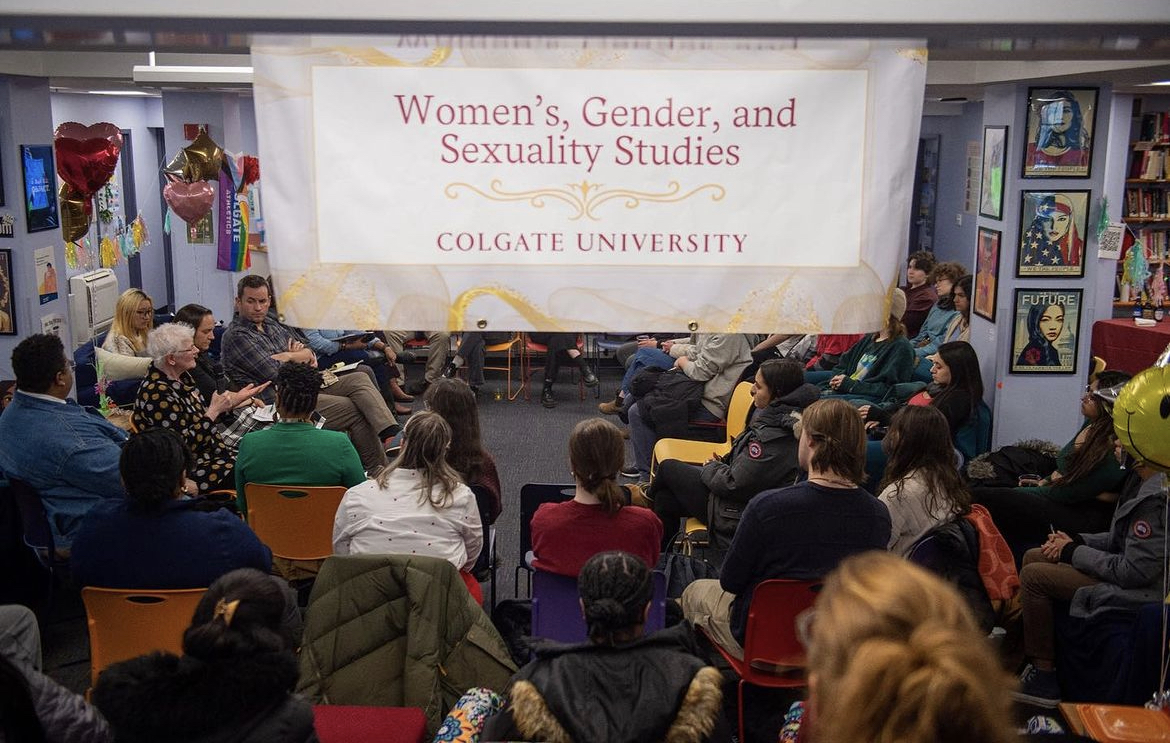The women’s studies (WMST) department at Colgate University will henceforth be called “Women’s, Gender and Sexuality Studies.” The change was made in February. This titular transition marks a new era of gender studies in academics at Colgate. The symbolic change in name emphasizes the program’s interdisciplinary approach, acknowledging the overlap between queer issues and feminism.
The history of women’s studies at Colgate goes back to the 1980s. The first director of the women’s studies program was hired in 1983, and the WMST major was accredited in 1990. In 1994, the basement of East Hall became the official Center for Women’s Studies, though a women’s resource center and female-interest housing had existed at Bolton House since 1976.
The Center for Women’s Studies and its associated academic programs have been crucial in defining a space for female students on campus — from the very first female class that was enrolled in 1970 through the present. The transition to the title of “Women’s, Gender and Sexuality Studies” places an emphasis on inclusivity and broadens the community to create a safe space for individuals of all genders, especially those that have historically faced challenges in academia.
The evolution of the program is essential in adhering to the mission statement of the program. According to the program’s page on Colgate’s website, courses aim to “study concepts of gender as a foundational element of global societies and cultures, and explore how gender intersects with sexuality, race, class, ability, nationality, ethnicity, religion and age in the constitution of experience and identities.”
Meika Loe, professor of sociology and women’s, gender and sexuality studies, shared that the name change was a collaboration with students meant to reflect the goals and values of the undergraduates who are a part of the program. Loe was the first faculty appointed directly to the women’s studies program, which was a huge step in solidifying the status of women’s studies.
“We have been discussing the name change for over a decade, as it more holistically represents what our discipline is about. Our students are very clear that this name change is important to them. They feel seen by this change and validated in their studies,” Loe said. “Especially in a time of great national backlash against gender and sexual diversity, this conveys our commitment to the discipline and to our community.”
The name change also reflects the interdisciplinary focus of the academic program. Faculty encourages students to analyze multiple perspectives and synthesize the diverse experiences of different communities. The goal is for this union of ideas to blossom into thoughtful and effective activism. Professor of French and Women’s, Gender and Sexuality Studies Hélène Julien further discussed the motivations behind the change.
“It reflects an evolution of thought and understanding moving away from essentialist ideas. We no longer think of ‘women’ as a narrow, biological category but understand it as a social category, inseparable from those of gender and sexuality, all of which are related to questions of position and the result of systems of classification. Including sexuality as a critical category reflects a challenge to compulsory heterosexuality that is central to a challenge to patriarchy and the binaries within which it operates,” Julien said. “Finally, adding gender and sexuality to our name reflects our desire to be inclusive of individuals who understand themselves and define their identities in different ways and of diverse faculty and thinkers.”
The change has been received positively by Colgate students, including sophomore Felicia Paul.
“I think the switch will have a positive impact because it’s more inclusive to all identities and also includes topics that students want to learn about and discuss in class,” Paul said.
First-year Bella Nalli reflected on the effect of the academic transition on the social environment.
“I think that it will overall facilitate more inclusivity among students, but that there will be an adjustment period first since change is a difficult thing,” Nalli said. “I also think that academics play a large role in creating an inclusive campus environment, as a significant part of the college experience is the education itself, so it will both socially and academically foster a welcoming environment on campus.”
Former director of the program Ulla Grappard praised the decision to change the program’s name. Grappard was a professor of economics and part of the team that founded the original WMST program at Colgate.
“With the inclusion of sexuality studies and the activism that has developed in that area, you have really made a huge jump in terms of what this center is and what the academic fields have to offer for you, as well as for the students that come after you. It really is something that changes the world for you,” Grappard said.
The change had been discussed within the program since 2014, and many faculty and students felt that the title “Women’s, Gender and Sexuality Studies” was more honest to the curriculum of the program. Ten years later, after much perseverance, the change has finally been enacted and marks a defining moment for the identity and legacy of the program.















